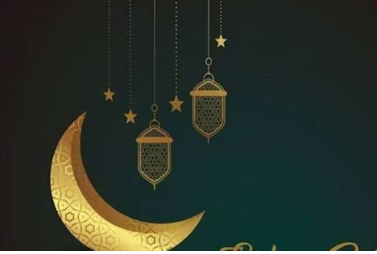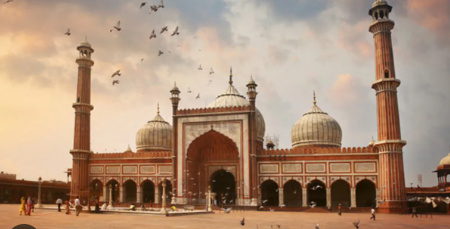This year, Milad-un-Nabi will begin on the evening of September 27 and end on the evening of September 28Muslims across the world celebrate Eid Milad-un-Nabi to mark the birth anniversary of Prophet Muhammad, the founder of Islam, also believed to be the messenger of God by Muslims. The date for the festival is dependent on the positioning of the moon. This year, Milad-un-Nabi will begin on the evening of September 27 and end on the evening of September 28Eid Milad-Un-Nabi is marked on the 12th Rabi’ ul-awwal, which is the third month of the Islamic calendar. The day is celebrated on different days by the Shia and the Sunni sects. The Sunni scholars have chosen 12th Rabi’ ul-awwal to celebrate Eid Milad-un-Nabi. Whereas, the Shia scholars mark the festivities on the 17th Rabi’ al-awwal
The birth date of Prophet Muhammad is also known as Mawlid. The word, which is derived from Arabic, translates to birth in English. The origin of celebrating Eid Milad-un-Nabi can be traced back to the early days of Islam when people used to gather and read verses to honour the prophet. The life of Prophet Muhammad and his teachings, as reflected in the Hadith, have influenced many across the world.Eid Milad-un-Nabi serves as an opportunity for people of the Muslim community to remember and honour Prophet Muhammad’s life and what he stood forThe festival is also widely observed in many countries including Sri Lanka, the United Kingdom, Pakistan, Sri Lanka, Bangladesh, Russia, and Germany. In most Muslim-majority countries, the festival is recognised as a national holiday.
The festival is also widely observed in many countries including Sri Lanka, the United Kingdom, Pakistan, Sri Lanka Why Prophet Muhammad’s Birthday Is Celebrated As Eid Milad-Un-Nabi This year, Eid-e-Milad falls on September 27 in Saudi Arabia and September 28 in India, Pakistan, Bangladesh, Sri Lanka, and other subcontinent regions.Muslims from the Sufi or the Barelvi school of thought celebrate the birth anniversary of the last Prophet of Islam, Prophet Muhammad, as Eid Milad-un-Nabi or Eid-e-Milad which is also called Nabid and Mawlid in colloquial Arabic. The festival is celebrated by the Sufi and Barelvi sect during Rabi’ al-awwal, the third month in the Islamic calendar

Bangladesh, Russia, and Germany. In most Muslim-majority countries, the festival is recognised as a national holidayMuslims belonging to the Sufi and Barelvi schools of thought celebrate the birth anniversary of the Prophet Muhammad as Eid Milad-un-Nabi, also known as Eid-e-Milad, Nabid, and Mawlid in colloquial Arabic. This celebration occurs during Rabi’ al-awwal, the third month of the Islamic calendar. The sighting of the crescent moon in October typically marks the beginning of Rabi’ al-awwal in India, Pakistan, Bangladesh, Sri Lanka, and other parts of the subcontinent regionIn the Islamic lunar calendar, Sunni Muslims celebrating Eid-e-Milad do so on the 12th day of Rabi’ al-awwal, while the Shia community observes it on the 17th day. This year, Eid-e-Milad falls on September 27 in Saudi Arabia and September 28 in India, Pakistan, Bangladesh, Sri Lanka, and other subcontinent regions
The history of celebrating the Prophet Muhammad’s birthday dates back to the early Rashidun Caliphs and was initiated by the Fatimids. Some Muslims believe that the Prophet was born on the twelfth day of Rabi’ al-awwal in 570 CE. While the word “Mawlid” means “birth” in colloquial Arabic, some also consider it a day of mourning as it is believed to be the Prophet’s death anniversary. Official celebrations of Eid-e-Milad began in Egypt and gained popularity in the 11th century.Initially, only the ruling Shia tribe in Egypt celebrated this festival, but it gradually spread to Syria, Morocco, Turkey, and Spain in the 12th century. Sunni Muslim sects also started celebrating it later on.Eid-e-Milad holds great significance for Sufi and Barelvi sects, but it is not universally accepted within the Muslim community. Scholars from Salafi and Wahhabi schools of thought consider it an innovation (biddah) in religion, as there is no historical evidence of the Prophet Muhammad or his successors celebrating his birthday. They argue that Islamic culture only permits the celebration of Eid al-Fitr and Eid al-
Eid-e-Milad celebrations have evolved over time. In Egypt, early celebrations involved prayers, speeches, Quranic verses, and a public feast. With Sufi influence, the festivities expanded to include animal sacrifices, public discourses, torchlight processions, and banquets. Today, Muslims celebrate Eid-e-Milad by wearing new clothes, offering prayers, and exchanging greetings. They gather at mosques or dargahs, start their day with morning prayers, hold processions through towns, and narrate stories of the Prophet’s life and teachings. Community meals, donations to the needy, and night-long prayers are also part of the celebrations, as friends and family come together to commemorate this special day

